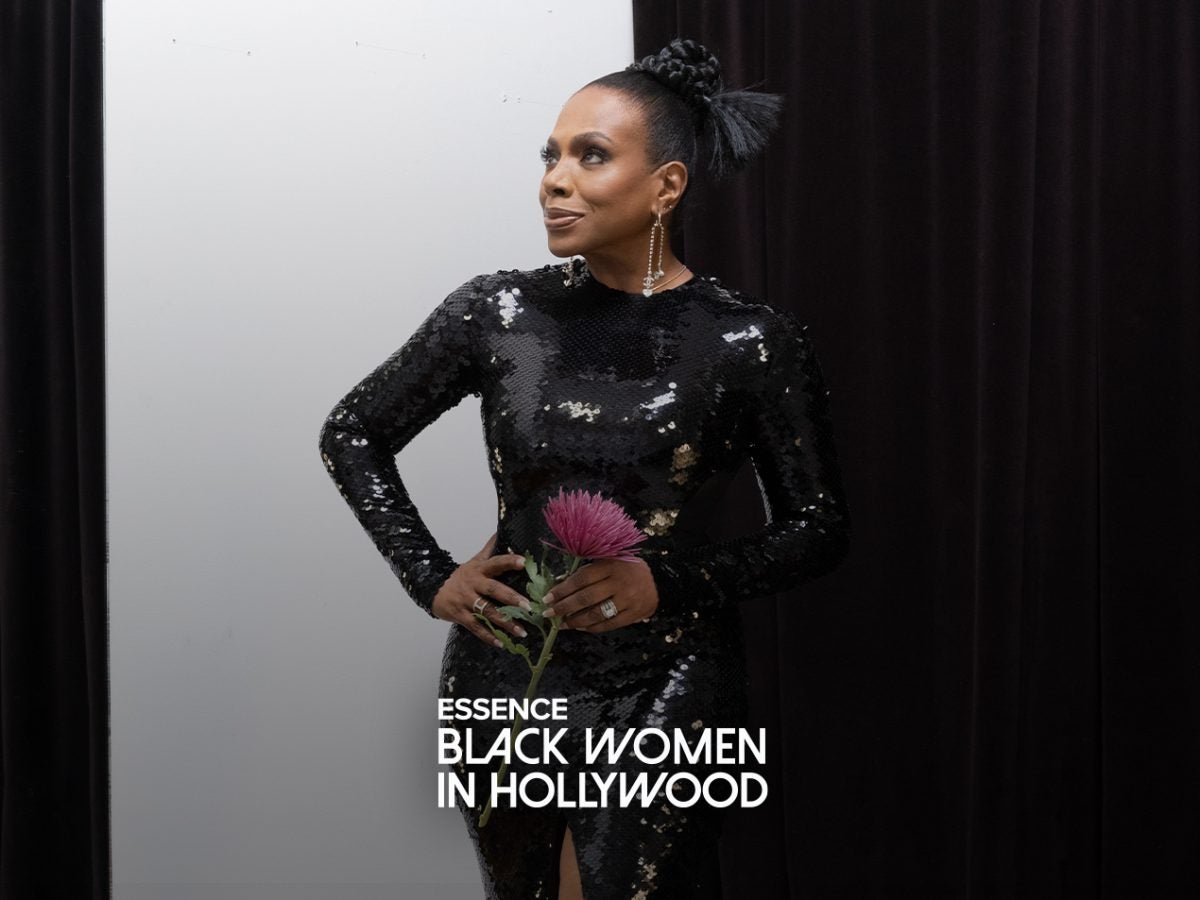
For more than four decades, Sheryl Lee Ralph has entertained audiences on Broadway, in movie theaters and in the comfort of their homes, with roles on iconic ’90s sitcoms like Moesha, on which she portrayed beloved TV mom Dee Mitchell.
“I was speaking to a young person once, and they said, ‘Miss Ralph, you have been relevant my whole life,’ ” the singer and actress told ESSENCE last year. “I thought about that, and I really have to thank God, because being at this time in my life, in my career, the things that I have witnessed as a woman, as an artist, as a Black woman, I am ever so grateful, because I may be bruised and battered, but my position in the war, my position on the front line, has been worth everything.”
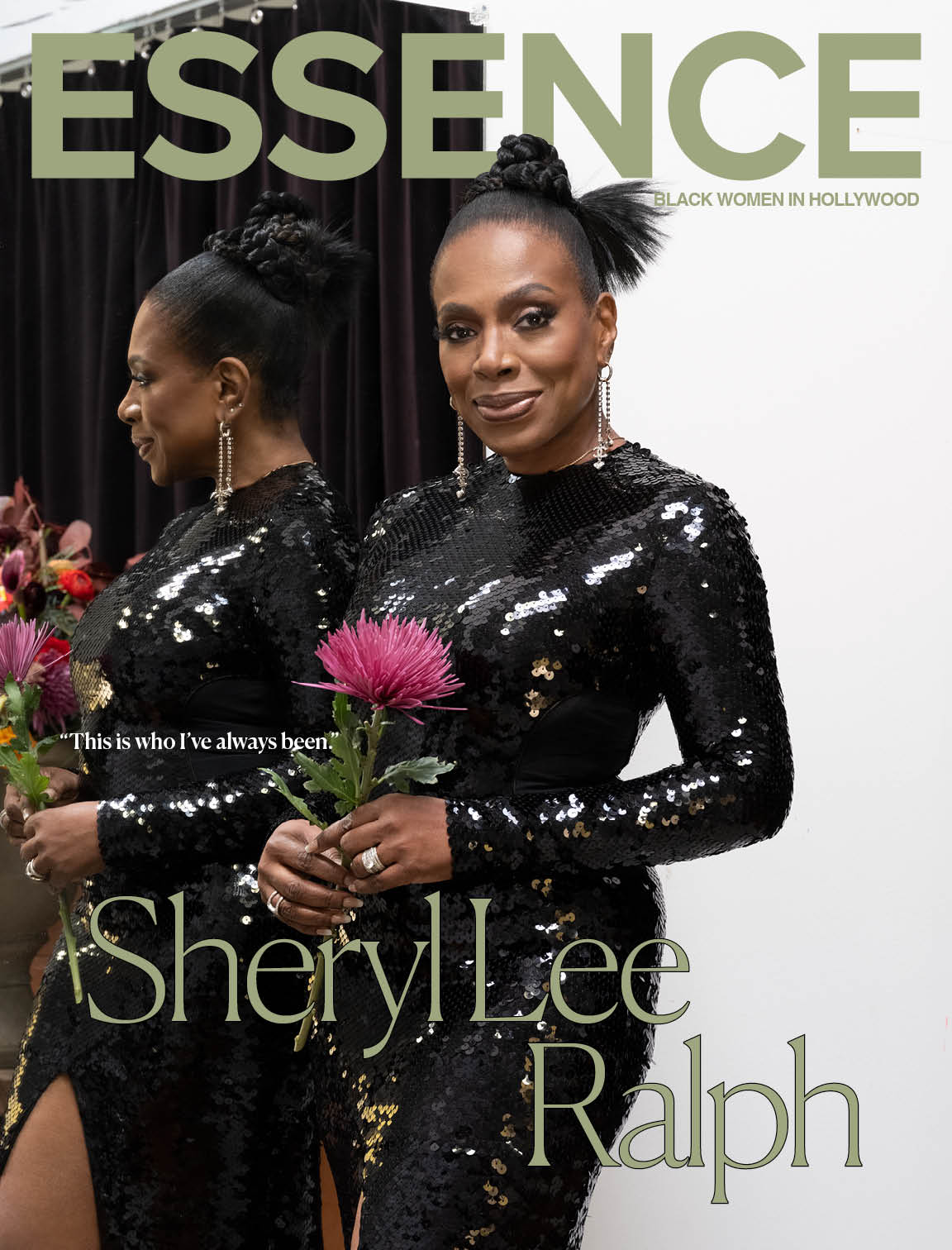
Here, the 2023 Black Woman in Hollywood honoree shares why now is the exact time for the industry to see and hear her.
In your own words, where did your journey as a Black woman in Hollywood begin?
Sheryl Lee Ralph (SLR): I’d have to say it started with my very first film, Piece of the Action, under the direction of Sidney Poitier. I was 19 years old, and I walked into a room where sitting there were some of the greatest young Black actresses at the time, and I was up against two. One was Tamu, who had just finished doing a wonderful film called Claudine, and the other was Pamela Poitier, Mr. Poitier’s daughter.
When I walked in there and I realized that we were the final three, I figured I’ve got nothing to lose here because guess who’s not getting the job? So, I just went in there, gave it my best, and I left. I went back to Jamaica. I was there with my mom, and about a month later I got a call, and they said, “We’re booking your ticket, and you’re coming to Hollywood.” And, that was Mr. Poitier on the phone. I could not believe it, but I was very excited and very happy with the outcome. It was probably one of the best places that any young actor or actress could be to get their real start in an industry that was less than welcoming at the time.
So many people associate Dreamgirls with your start in the industry, but you actually started in film. What did it mean to you, though, to be cast as the original Deena Jones?
SLR: Oh, first of all, Loretta (Devine) and I were there from the very beginning. So we were like, “Oh, wow. Is it going to be us now? Is it going to be a workshop? Who’s going to be Effie? What’s going to happen here?” But when we finally got with Michael Bennett, things started to really take shape. Jenifer Lewis was in at one time as Effie, Estelle Getty from the Golden Girls, she was in the production at one time within these workshops, so many great talents were coming in and out. Finally, when they settled on the show, even S. Epatha Merkerson was in it.
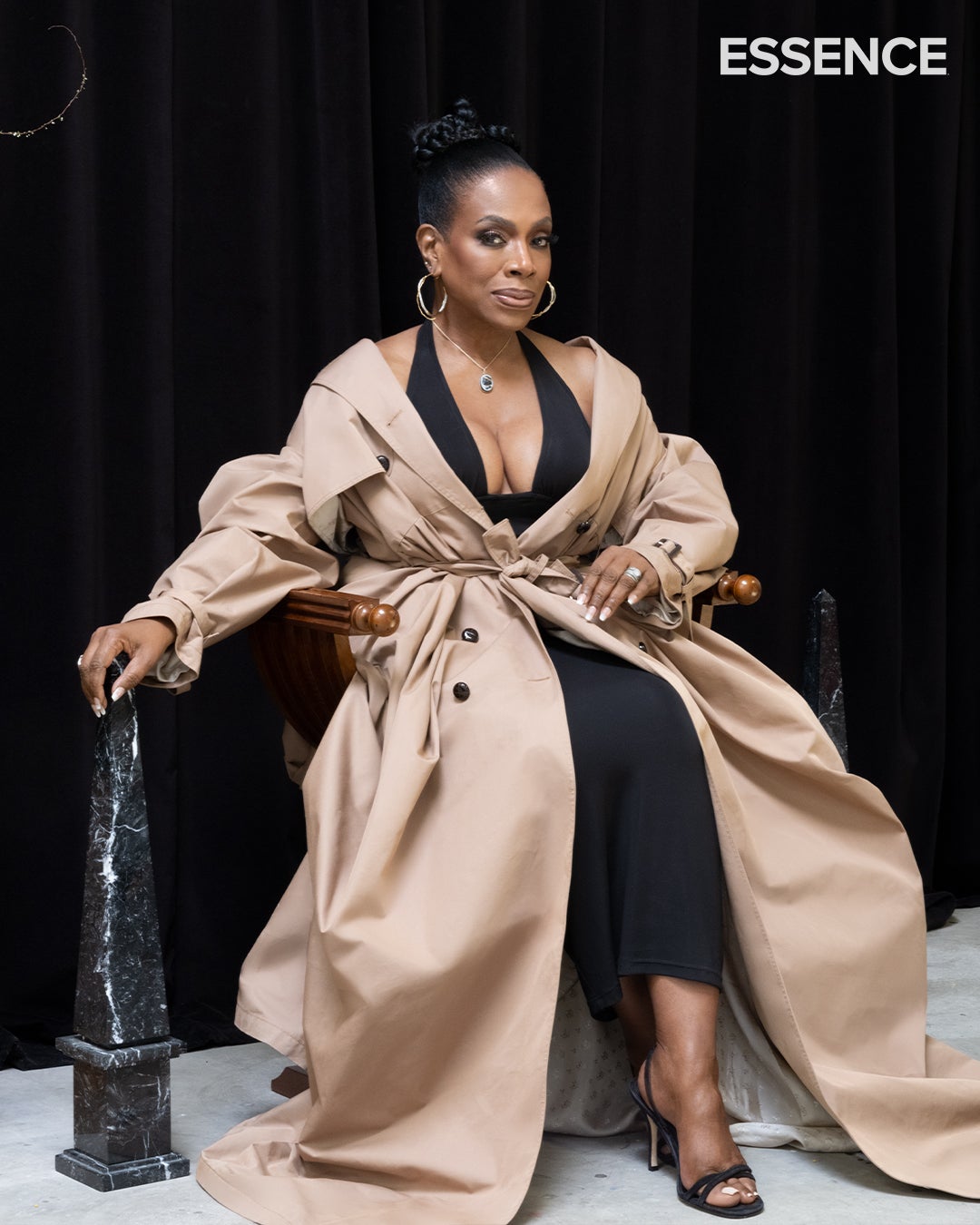
When all of was figured out, we became a ’60s girl group. It was like magic. Everything was falling into place and, it was great. It was a wonderful experience. Hard, difficult, grinding, trying at times. There were some moments you thought, “Why am I doing this?” There were some moments that you’ve got to read about it in a book because it would be very hard for people to believe that’s what happened. But it did. In high heels, too, thank you.
I love hearing the names of other Black women you were working with at that time. Did it feel like you were in this together?
SLR: I was never alone. I was mentored by some of the strongest Black actresses of their time. Virginia Capers, Tony Award winner on Broadway. Rosalind Cash, movie after movie. The woman who stood up and said, “My hair is my crown, and if I want to grow it out of my head the way it grows out naturally, that is how I will wear it.” The industry tried to blackball her because she stood up for her locs and her natural hair, the beauty of a Beverly Todd and a Judy Pace. These women were around me. They were speaking, they were taking up space, and I never felt alone. But, I’ve also been the kind of person I ask for what I want, and especially if that is help and direction, and they just happened to be the kind of spirits that could give it to me. Oh, man, I’m telling you, I was never alone.
Very early in your career you realized the impact of art in activism, particularly for you with HIV and AIDS. Talk about forming the D.I.V.A. Foundation. Did that feel like a risk at that time?
SLR: It was very risky. People would tell you to your face, “They’re not going to like you. You spend too much time with those people.” A church once wrote me a letter and told me that God would find no favor in me. They lied. They didn’t know the God that I serve. They didn’t know that, but they took time to write that letter and tell me that. There were people who were even infected with the disease who had to ask me, “Why would you take this kind of risk? It is not worth it.”
When I started 33 years ago with the first Divas Simply Singing, there were people in the industry who told me it was a complete and utter waste of my time, that I should be spending my time in better ways. And, I thought to myself, Spending my time in better ways than helping Black people and other people in the time of their greatest need? Oh, there’s a better way for me to spend my time? Give me a break. They did not give me a break. Every time it seemed like there might be somebody to help, guess what they chose to do? Not help. Those you thought might see you? Guess what they did? Closed their eyes. I had someone look at me and tell me, “Girl, you out on your own on this.”
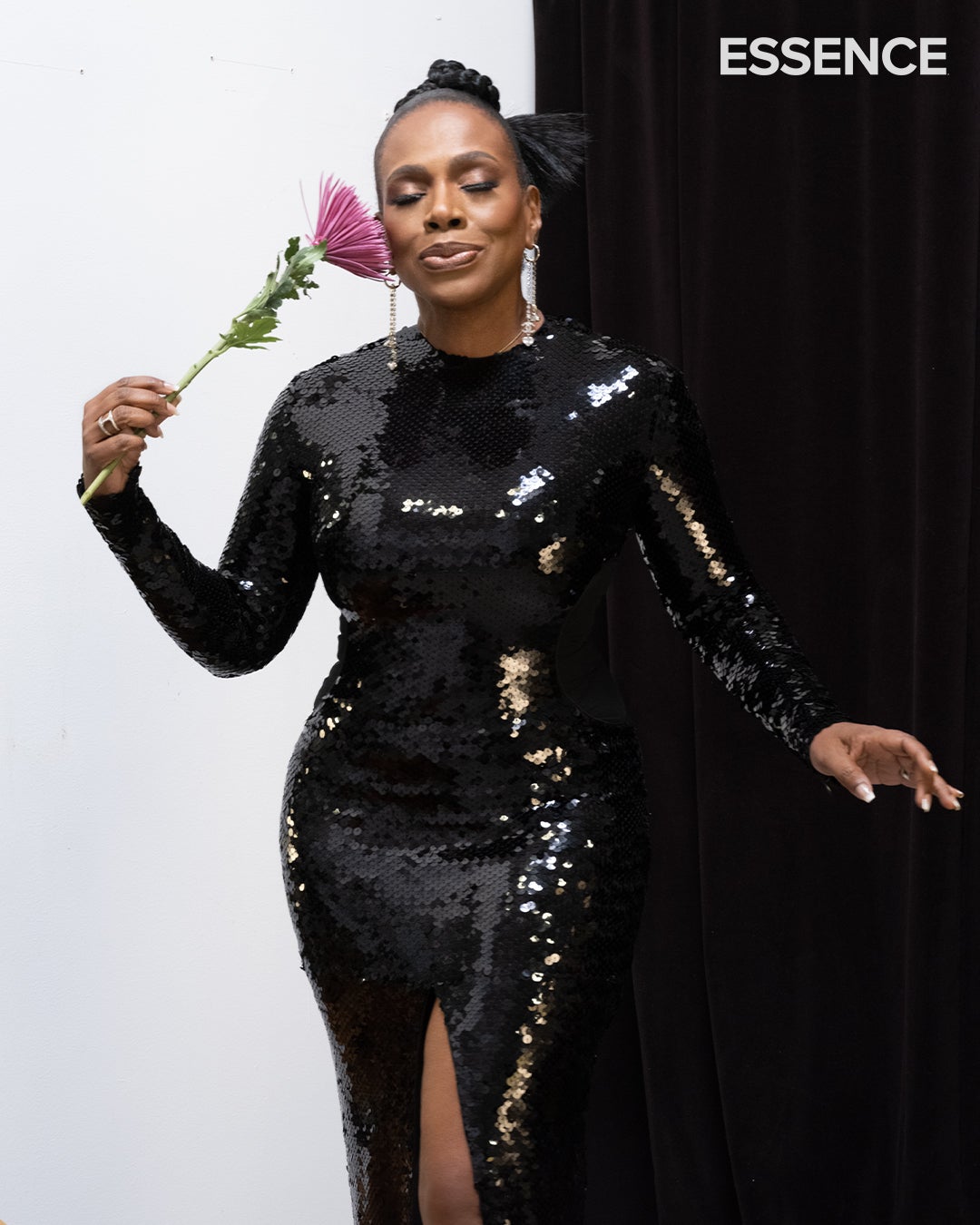
What kept you going?
SLR: The fact that it was necessary. Do you know how many people were dying, just literally dropping dead? Do you know How many Black folks lost their lives, suffered and died and were discarded like garbage? It was horrible and nobody said they were essential. They were essentially not necessary. Nobody spoke up. Nobody said anything. And, if they did, it was with a whisper.
We lost so many great young people, artists, talents, mothers, fathers, sisters, brothers. For us, it was never about color. There was some intersection that happened between AIDS and being gay and crack, and we got sunk into the pit right there, and nobody talked about that. They still don’t talk about that– 40, 45 years later, here we are. Young people don’t even realize that it happened. They don’t even know that it happened. They don’t even know how people suffered.
There were no funerals for them. People wouldn’t touch them, doctors wouldn’t touch them. Their families ignored them and discarded them. It was horrible. And I, in my mind, said, People of color, we’ve been through so much. Black folks, we don’t deserve this, and we better say something. And if nobody’s going to say something, I’m going to say something about this. And that’s how that started.
Your words take me back to the conversation you had with Jackée Harry when you said you immediately embraced the title of role model. How has doing so informed the characters you’ve chosen to play and those you won’t?
SLR: My career has been one of intention. I take roles that one, match me in some way. A funny thing happens sometimes when it’s a great script and a great role, you read it, and the character embodies you. They take over. And, when that happens, for me, I know it’s right. But, I also want young women and boys, my community, my people, I want them to look at that screen and say, “That’s why we love her. That’s why. There she is.” When they talk about represent, for me, it’s important to represent. It means something. I’ve been in this career a long time now, and I know representation means something.
Has it felt like there were always opportunities for you?
SLR:You know something? In my mind, there have always been opportunities because I will never forget Virginia Capers telling me, “If they’re not going to write it for you, you must write it for yourself.” I am not the greatest writer, but I’m always writing and working on something for myself and now for others. So, that has been an ongoing process for me. Don’t leave the work undone. Always be creating.
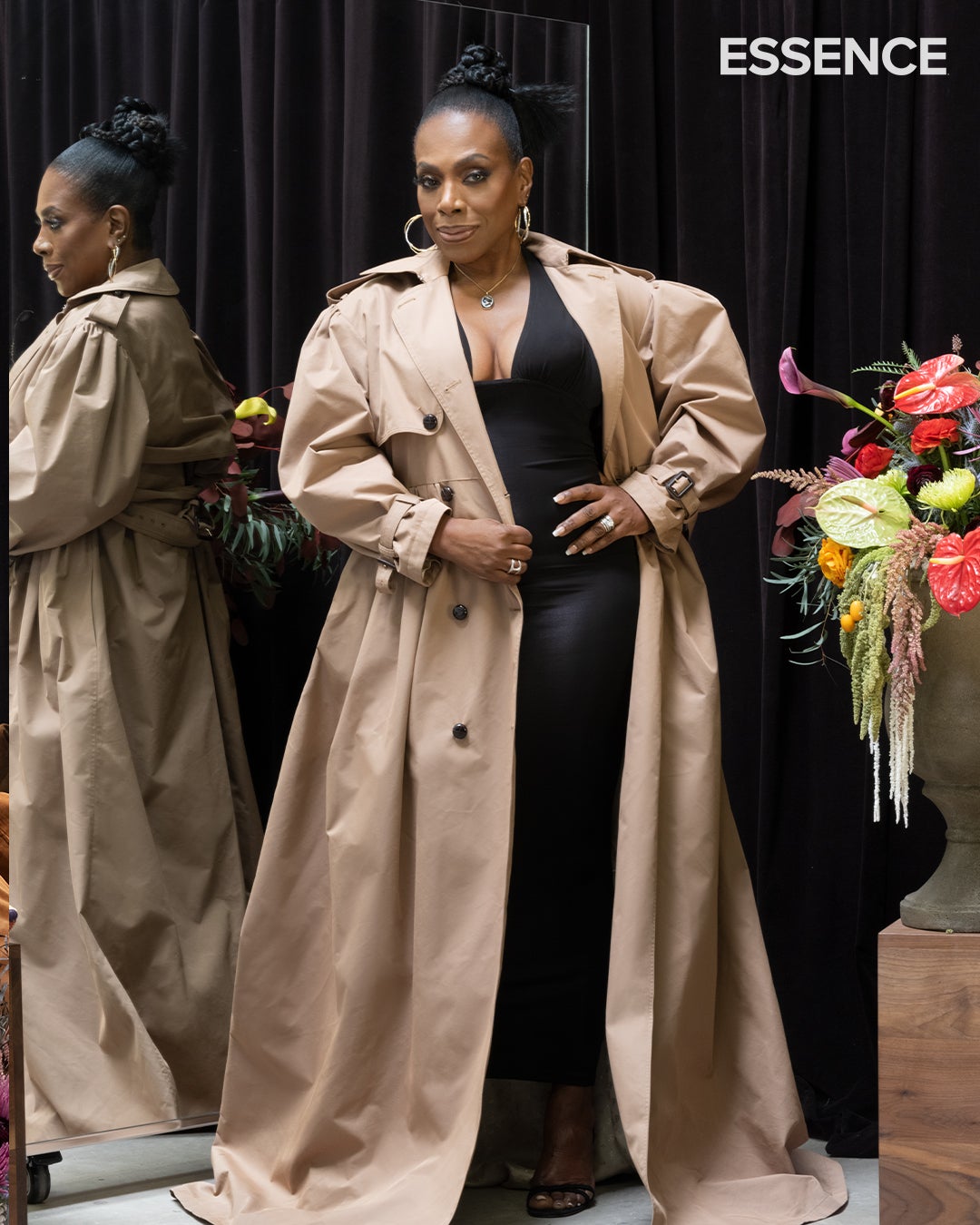
Take us back to last year’s Emmys. Did you feel like that was going to be your night?
SLR: I did not know or feel it was going to be my night. I really felt it was going to be somebody else’s night. When they called my name, I was absolutely, totally, completely in shock. I was in such shock, I had to play in my brain over and over, Did they really just call my name? Am I awake? Am I in the dentist chair? Am I under some gas? What’s happening here? And then, finally, I heard Quinta say, “Sheryl, get up.” I don’t remember it, really. But, I do remember centering my myself center stage, and saying, “Okay, calm down. Calm down. Don’t cry.” And, I just sang because that was very calming for me, especially a song that I had been singing for so long.
“Endangered Species” just came to mind in that moment?
SLR: Yes, “Endangered Species” is a song that Dianne Reeves had written with a friend of hers back in the day. I discovered the song as a teenager in the Ms. Black San Francisco pageant and, I said, “Whoa, what an incredible song.” I was writing a one-woman show called, Sometimes I Cry, Real Women’s Real Stories Around HIV and AIDS, and I said to Diane, “Can I use this song to open the show?” And, she said, “Girl, sing that song as much as you like.” So, the song is in me. The song resonates with me. If people love the first verse, they should hear the second verse. “I raised my fists. I don’t shake my hips because I know where my voice belongs. I mean, what a song of empowerment for women of color, Black women.”
I was just in that moment, when the industry gave me this huge award, I said, I’m an endangered species. It has been hard for me doing this, but I know where my voice belongs. That’s why I’ve never given up, because I belong right here. No matter who can’t see me, no matter who decides to ignore me. That’s all right because I’m all right. I’m all right with me. I’m all right with the work that I’ve done, and I’m only going to get better.
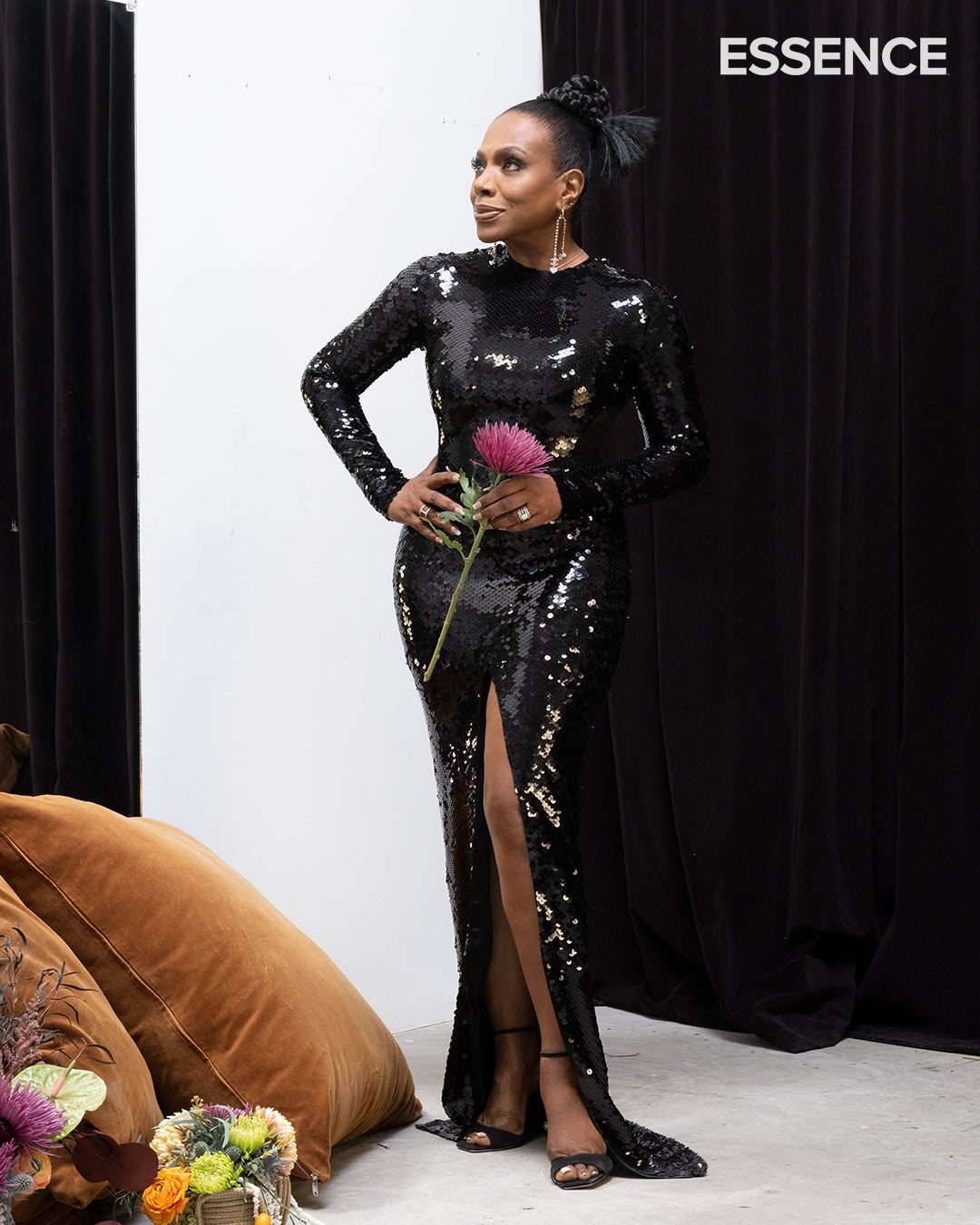
Then you go and make history at the biggest sporting event of the year.
When I got the call from the NFL that they wanted me to sing at the Super Bowl, I was like, “Wait, what? Really? Yes, yes. Okay, what song?” They had three songs in mind and it was between “America The Beautiful” and then “Lift Every Voice and Sing.” And then, something happened, and they said, “”No. “Lift Every Voice and Sing.” Why would fate have it that on the day of the Super Bowl, that was the 123rd anniversary of the first public appearance of “Lift Every Voice and Sing?”
It was crazy. But, my musical director, Adam Blackstone, and I worked together and I said, “Adam, I want it to sound like new marching orders. I want people to know we are at the tipping point. We can make this. We can cross this bridge to true freedom and acceptance for who we are fully as human beings.” It can happen. It can happen now, because we are at a very strange precipice right now. The same things that have been done in the past to try to ruin us as a people, they’re trying to do them once again. What do you do? You divide and conquer. You hide the truth from people. You try to kill off the men of the people. This is nothing new. You can find this in all of these war books. You can find this in all of these manuals. You can find all of these steps. They have been written down in history after history book, after a history. The ones that you can find and read. It’s all there. This is how you destroy a people.
And, guess what happens? Strong people keep coming. Strong people keep marching till victory is won. That’s what I’m talking about. And, that’s what I wanted in my song. And, obviously, we got it because there were so many people who loved it, but there were a few who got kind of prickly. And, they were so prickly, I was like, “Hallelujah. I touched your nerve. Thank you very much.” I knew the assignment.
Being at this point in your career, everyone wants to talk to you, everyone wants to honor you, everyone wants to see you. How does it feel to be seen today in ways you probably should have always been?
SLR: If I was supposed to have been seen differently before, I would have been seen differently before. God did not put me here in this place to gather gold objects. God put me here in this place to spread knowledge, to spread wisdom, to be a north star. That’s what I’m here for. All of the other stuff is great. I love it. But, there’s much more for me to give than to just receive awards. At least, that’s the way I look at it. So, now is the time. Not before. I wasn’t ready then. I didn’t know as much then. I was not ready then. Besides, the world had to catch up to me. This is who I’ve always been. You can just hear me now. You can just see me now. You can just receive me now. But, this is who I’ve always been.
Photographed by Paul Mpagi Sepuya – @pagmi
Styled by Jason Rembert – @jasonrembert
Makeup by DeMario “Marquis” Ward using Lys Beauty – @marquiswardbeauty
Hair by Kahh Spence using OGX Beauty – @kahhspence
Photography Studio Manager: Nico Dregni
Florals: Sebastian Jamal
Styling Assistants: Kirsten McGovern
Styling Assistants: Christina Arroyo (Duncan,Throne, Bythewood)
Tailor: Irina Tshartaryan
Production Coordinators: Gabriel Bruce, Benjamin Rigby, Alaura Wong
Production Assistant: Jordan Mack
Photography Direction by Michael Quinn – @_mq______
Production by The Morrison Group – @themorrisongroup
Special Thanks to Luxe Sprinter LA





